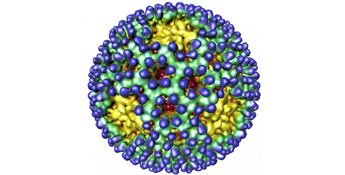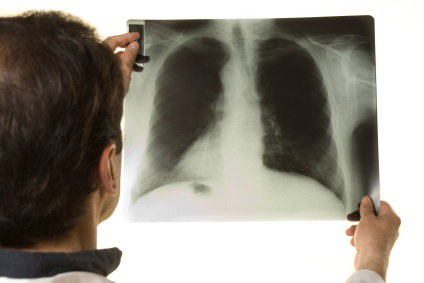Health And Medicine
-

Data diving for health
To most effectively use electronic health records for research, investigators should query multiple components of the record to identify patients with specific diseases. Read MoreSep 23, 2015
-

Keep your coat on, virus!
A compound acting on serotonin receptors delays a critical step during reovirus cell entry, reducing viral infectivity. Read MoreSep 22, 2015
-

Nerve cell remodelers
Vanderbilt investigators have defined a gene expression program that controls the timing of synaptic remodeling – a process that is critical to brain development, learning and memory. Read MoreSep 18, 2015
-

Heart repair factor
A signaling factor called Wnt10b is a novel target for optimizing cardiac repair after a heart attack. Read MoreSep 17, 2015
-

Study shows lower systolic BP targets reduce death risk
The initial results of a landmark clinical trial sponsored by the National Institutes of Health (NIH) indicate lowering systolic blood pressure below a commonly recommended target significantly reduces rates of cardiovascular events and lowers risk of death in a group of adults 50 years and older. Read MoreSep 17, 2015
-

Vanderbilt Kennedy Center to continue as national Developmental Disabilities Research Center
The Vanderbilt Kennedy Center (VKC) has been awarded a $6.5 million, five-year grant to continue as a national Eunice Kennedy Shriver Intellectual and Developmental Disabilities Research Center (IDDRC). Read MoreSep 17, 2015
-

Grants spur effort to add genetic data to EMR
Vanderbilt University researchers have received two major federal grants — totaling $7.6 million over four years — to support groundbreaking research aimed at making genetic information a routine part of patients’ electronic medical records. Read MoreSep 10, 2015
-

Diabetes trial targets body’s ability to produce insulin
Kiersten Eaddy had long looked forward to her high school graduation day and joining her classmates to celebrate the accomplishment. Read MoreSep 10, 2015
-

Initiative seeks to bolster ‘rediscovery research’
The Vanderbilt Institute for Clinical and Translational Research (VICTR) is partnering with a public charity, Cures Within Reach, to encourage “rediscovery research,” the “repurposing” of already approved medical treatments to other conditions or diseases for which there are no “universally” effective therapies. Read MoreSep 10, 2015
-

Gifford, Bell land development awards in aging research
Two faculty members of the Vanderbilt Memory and Alzheimer’s Center are among a handful of 2015 scholars for the Paul B. Beeson Career Development Awards in Aging Research Program. Read MoreSep 10, 2015
-

Ebola symposium to feature Nigerian physicians
Three Nigerian physicians who survived Ebola virus disease in July 2014 after coming in direct contact with an Ebola-infected patient will speak at Vanderbilt University Medical Center next Wednesday, Sept. 16. Read MoreSep 10, 2015
-

How to build a basement
Understanding the action of a certain enzyme will shed light on basement membrane function, and on disorders ranging from diabetic kidney disease to cancer. Read MoreSep 9, 2015
-

Immune cells and obesity
Understanding how macrophage immune cells accumulate in fat tissue and contribute to the pathology of obesity could lead to the development of novel therapeutics for metabolic disorders. Read MoreSep 8, 2015
-

Vitamin C protects blood vessel lining
Dietary vitamin C may maintain healthy blood vessels in patients with inflammatory diseases. Read MoreSep 4, 2015
-

Bad “traffic” linked to cancer
Understanding how signaling molecules are transported within and out of the cell may help to uncover the causes of certain cancers. Read MoreSep 3, 2015
-

Clayton to co-chair National Academies’ review committee
Ellen Clayton, M.D., J.D., the Craig-Weaver Professor of Pediatrics and professor of Law and Health Policy at Vanderbilt University, has been selected to serve as co-chair of the National Academies’ Report Review Committee (RRC). Read MoreSep 3, 2015
-

New program set to explore effects of music on the mind
Vanderbilt University is seizing the opportunity to become a hub for music research in the heart of Music City. Read MoreSep 3, 2015
-

Carr, Manning honored by radiology research academy
Two leaders in imaging science at Vanderbilt University are among 37 recipients of the 2015 Distinguished Investigator Award from the Academy of Radiology Research (ARR), academy officials announced last week. Read MoreAug 27, 2015
-

Arteaga lauded for cancer research contributions
Carlos L. Arteaga, M.D., the Donna S. Hall Professor of Breast Cancer and director of the Center for Cancer Targeted Therapies and the Breast Cancer Program at Vanderbilt-Ingram Cancer Center (VICC), has been recognized for his cancer research efforts by the American-Italian Cancer Foundation (AICF). Read MoreAug 27, 2015
-

Depression study seeks to predict treatment response
Treating depressed individuals and figuring out who will and won’t respond to antidepressants is mostly trial and error — much to the frustration of patients and the health care providers who treat them. Read MoreAug 27, 2015